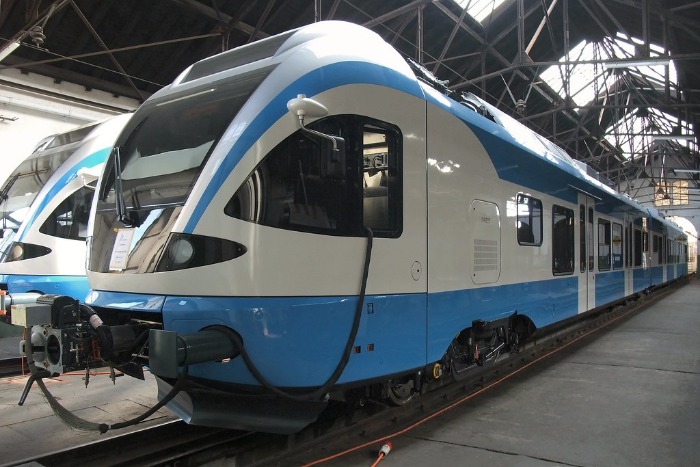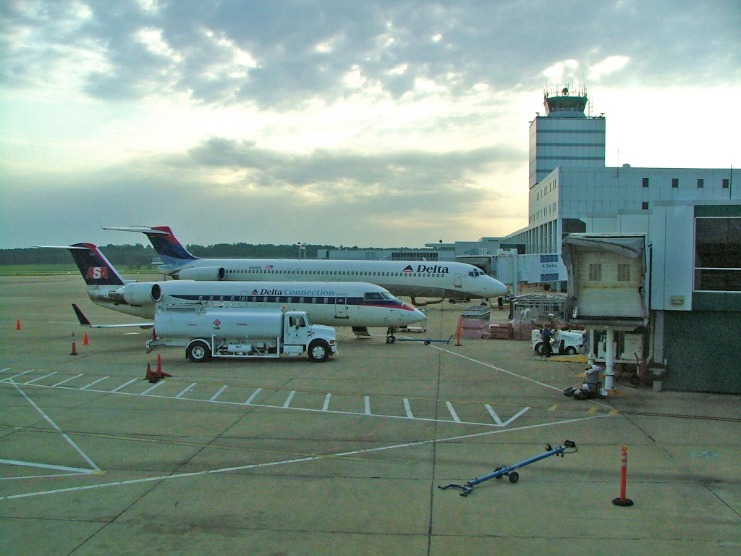Overview of Algeria Airports
Algeria boasts a well-developed network of airports that connect the country both domestically and internationally. These airports serve as vital hubs for passenger travel, cargo transportation, and economic growth. With modern facilities and strategic locations across the nation, Algeria’s airports play a crucial role in facilitating travel and commerce for residents and visitors alike.
Major International Airports
Algeria is served by a well-developed network of airports that facilitate domestic and international travel. These airports are strategically located across the country to support economic growth, tourism, and connectivity. Major airports in Algeria handle significant passenger and cargo traffic, with facilities designed to cater to the needs of travelers and airlines alike.
The primary international gateway is Houari Boumediene Airport in Algiers, which is the busiest and most equipped airport in the country. It offers numerous international flights connecting Algeria to various destinations in Europe, Africa, the Middle East, and beyond. Other important international airports include Oran Es Sénia Airport, which serves the city of Oran and the northwest region, and Constantine Mohamed Boudiaf Airport, connecting eastern Algeria with international locations.
In addition to these major airports, there are several regional airports such as Annaba Rabah Bitat Airport, Tlemcen Zenata Airport, and Skikda Benjamin M’Hidi Airport, which support domestic travel and regional connectivity. These airports collectively enhance Algeria’s accessibility and support its economic and tourism sectors.
Secondary and Domestic Airports
Algeria has a well-developed aviation infrastructure that includes several international, secondary, and domestic airports, facilitating both international travel and domestic connectivity across the country. The primary airport, Houari Boumediene Airport in Algiers, serves as the main gateway for international flights and handles the majority of air traffic in the country.
In addition to the main airport, Algeria features numerous secondary airports such as Oran Es Sénia Airport, Constantine Mohamed Boudiaf Airport, and Annaba Rabah Bitat Airport, which support regional flights and provide access to various parts of the country. These airports often handle both passenger and cargo traffic, easing travel demands in different regions.
Domestic airports in Algeria play a crucial role in connecting remote areas with major urban centers. Airports like Tamanrasset Airport, Tlemcen Airport, and Béchar Airport offer domestic flights that facilitate travel within the country, boosting tourism, trade, and regional development. Overall, Algeria’s comprehensive airport network ensures efficient mobility and supports economic growth throughout the nation.
Key Features of Algerian Airports
Algerian airports are equipped with modern facilities and infrastructure that cater to both domestic and international travelers. They serve as key gateways to the country, offering a range of amenities to ensure a comfortable and efficient travel experience. From advanced security systems to diverse passenger services, Algerian airports showcase a blend of modernization and hospitality, reflecting the country’s growing connectivity and strategic importance in the region.
Facilities and Services
Algerian airports serve as vital gateways for travelers and cargo, offering a range of facilities and services designed to ensure comfort, safety, and efficiency. These airports are equipped to handle high passenger volumes and international flights while providing modern amenities.
- Modern Terminal Buildings: Many Algerian airports feature state-of-the-art terminals with spacious lounges, check-in counters, customs and immigration areas, and retail outlets.
- Passenger Facilities: Availability of waiting lounges, baggage handling, lost and found services, currency exchange, and free Wi-Fi to enhance passenger comfort.
- Transportation Services: Well-organized ground transportation options including taxis, car rentals, shuttle services, and public transportation links to city centers.
- Airline Services: Multiple domestic and international airlines operate from Algerian airports, offering a variety of flight options and connections.
- Security and Safety: Advanced security screening systems, surveillance, and trained personnel ensure passenger safety and smooth operations.
- Cargo Handling: Dedicated cargo terminals equipped with modern infrastructure to facilitate the import and export of goods efficiently.
- Facilities for Special Needs: Accessibility services for disabled travelers, including ramps, designated parking, and assistance services.
- Additional Services: On-site medical facilities, baggage wrapping, duty-free shopping, and hospitality lounges to enhance the travel experience.
Passenger Amenities
Algerian airports are equipped with a range of key features and passenger amenities designed to enhance the travel experience. These airports serve as vital hubs for domestic and international flights, offering modern facilities and services to travelers.
- Passenger lounges with comfortable seating and entertainment options
- Duty-free shopping areas featuring a variety of local and international brands
- Multiple restaurants and cafes catering to diverse culinary preferences
- Information counters providing assistance and flight updates
- Free Wi-Fi connectivity throughout terminal buildings
- Luggage handling and storage services
- Accessible facilities for travelers with special needs, including ramps and assistance
- Customs and immigration desks equipped for efficient processing
- Transportation services including taxis, shuttles, and car rentals
- Security measures ensuring passenger safety and streamlined check-in processes
Security and Safety Measures
Algerian airports are equipped with modern facilities and robust security measures to ensure the safety of travelers and staff. These airports serve as vital gateways for international and domestic flights, offering a range of services to enhance passenger convenience and security.
- Advanced Security Screening: Use of state-of-the-art scanning technology for baggage and passenger screening to detect prohibited items.
- Border Control Checkpoints: Rigorous passport and visa verification processes aligned with international standards.
- Surveillance Systems: Comprehensive CCTV coverage throughout terminals and airside areas for real-time monitoring.
- Access Control: Restricted access areas with security personnel ensuring only authorized personnel can enter sensitive zones.
- Emergency Response Protocols: Well-trained security teams and emergency services prepared for incidents, including fire, medical emergencies, and security threats.
- Cargo Security: Stringent inspection procedures for cargo and freight to prevent smuggling and ensures safety compliance.
- Passenger Identification: Use of biometric and electronic identification systems to improve detection and reduce fraud.
- Safety Signage and Public Announcements: Clear instructions and real-time updates to guide passengers during security procedures and emergencies.
Airline Operations in Algeria
Airline operations in Algeria play a vital role in connecting the country with the rest of the world, supporting both domestic travel and international commerce. Algeria’s airports serve as important hubs for various airlines, facilitating efficient transportation and contributing to the nation’s economic growth. With ongoing developments and modernizations, Algerian airports continue to enhance their capabilities to meet increasing passenger demands and uphold safety standards.
Major Airlines Serving Algerian Airports
Airline operations in Algeria are centered around a network of domestic and international carriers that serve the country’s airports, connecting Algeria to various parts of Africa, Europe, the Middle East, and beyond. The primary hub for airline activities is Houari Boumediene Airport in Algiers, which handles the majority of international traffic and offers numerous flights to major destinations. Other significant airports include Oran Es Sénia Airport, Constantine Mohamed Boudiaf Airport, and Annaba Rabah Bitat Airport, each hosting several airlines that facilitate regional connectivity.
The major airlines serving Algerian airports include Air Algérie, the national carrier, which operates extensive domestic routes within Algeria alongside international flights to Europe, the Middle East, and Africa. Other airlines such as Tassili Airlines, a subsidiary of Air Algérie, focus on regional services, particularly within Africa. International carriers like Air France, Turkish Airlines, Royal Air Maroc, and Lufthansa also operate regular flights into Algerian airports, offering travelers a diverse array of options for both business and leisure travel. Overall, airline operations in Algeria are vital for maintaining the country’s connectivity, supporting tourism, commerce, and cultural exchange.
Frequency of Flights and Destinations
Algeria’s airports serve as key hubs for both domestic and international airline operations, supporting a range of destinations across Africa, Europe, the Middle East, and beyond. The airline industry in Algeria is characterized by a variety of flights that cater to passenger and cargo needs, with a focus on connecting major cities such as Algiers, Oran, Constantine, and Annaba. Frequency of flights varies depending on the route and season, with the busiest routes typically seeing daily or multiple weekly services to major European destinations like Paris, Marseilles, and Istanbul. Domestic flights are also frequent, facilitating travel between Algeria’s main cities within the country. Overall, the airline operations in Algeria are vital for economic development, tourism, and international connectivity, supported by a network of well-established airports that facilitate these operations efficiently.
Transportation to and from Algerian Airports
Transportation to and from Algerian airports is a crucial aspect for travelers seeking convenient and efficient travel experiences. Whether arriving for business or leisure, visitors can choose from a variety of options such as taxis, shuttle services, car rentals, and public transportation to easily reach their destinations. Well-connected and accessible, Algerian airports serve as vital gateways to the country’s diverse regions, ensuring smooth transit for both local residents and international visitors.
Ground Transportation Options
Transportation to and from Algerian airports offers a variety of options for travelers to conveniently access their destinations. Upon arriving at or departing from airports such as Houari Boumediene Airport in Algiers, there are several ground transportation choices available. Taxis are widely available outside the terminals, providing quick and flexible rides to city centers or nearby regions. Ride-sharing services are also accessible in some airports, offering an alternative to traditional taxis. Public buses serve as an economical option for reaching various parts of the city and surrounding areas, although schedules and routes may vary. Car rental agencies are present at major airports for travelers who prefer to drive themselves, offering a range of vehicles for short or long-term rentals. Additionally, shuttle services and airport transfer companies operate pre-arranged transportation options for a more comfortable and reliable journey. Overall, these diverse ground transportation options ensure that travelers arriving at Algerian airports can choose the most suitable means to reach their destinations efficiently and comfortably.
Accessibility for Travelers
Transportation to and from Algerian airports is generally well-developed, offering a variety of options for travelers. Major airports such as Houari Boumediene Airport in Algiers and Oran Es Sénia Airport are accessible through taxis, shuttle services, car rentals, and public transportation. Taxis are readily available outside the terminals and provide a convenient way to reach city centers or other destinations. Many airports also operate dedicated shuttle buses that connect passengers to key parts of the city or nearby accommodations. Car rental agencies are present at most airports, allowing travelers to arrange their own transportation plans. Public transportation, including buses and metro systems in larger cities like Algiers, ensures affordable access for those comfortable with local transit systems. Accessibility features are increasingly incorporated into airport infrastructure, with designated assistance services, ramps, and facilities for travelers with limited mobility, making travel easier for everyone. Overall, Algerian airports aim to provide efficient and accessible transportation options to accommodate the diverse needs of international and domestic travelers alike.
Recent Developments and Future Projects
Recent developments at Algerian airports have marked significant improvements in infrastructure and passenger services, reflecting the country’s commitment to modernizing its aviation sector. These advancements include the upgrade of existing terminals, the expansion of runways, and the implementation of advanced security systems. Looking ahead, future projects aim to enhance connectivity, introduce smart technology, and further boost tourism and economic growth through increased international flights and modern facilities at key airports across Algeria.
Airport Expansions and Modernization
Recent developments in Algerian airports have marked significant progress in expanding and modernizing the nation’s aviation infrastructure. Major airports such as Houari Boumediene International in Algiers and Oran Es Sénia Airport have seen large-scale upgrades, including terminal expansions, improved baggage handling systems, and advanced security facilities. These improvements aim to enhance passenger experience, increase capacity, and meet international standards.
Future projects focus on further expansion and technological integration. Plans include constructing new runways, upgrading existing terminals with smart technology, and implementing sustainable practices to reduce environmental impact. The goal is to position Algerian airports as regional hubs for air traffic, boosting tourism and economic growth.

Airport modernization efforts also encompass the introduction of automated check-in kiosks, biometric identification systems, and improved air traffic management systems. These advancements are expected to streamline operations, reduce delays, and enhance safety at Algerian airports, aligning with global aviation trends and increasing connectivity for travelers.
Upcoming Infrastructure Projects
Recent developments at Algeria Airport include significant upgrades to terminal facilities, enhanced security systems, and the implementation of advanced baggage handling technologies to improve passenger experience. The airport has also expanded its runways and taxiways to accommodate increased air traffic and new international routes.
Future projects aim to further transform Algeria Airport into a regional hub. Plans are underway for constructing a new passenger terminal, adding more parking facilities, and upgrading air traffic control towers. Additionally, several infrastructure projects focus on sustainable development efforts, such as integrating renewable energy sources and improving environmental management systems to ensure a greener operation.
Upcoming infrastructure projects include the development of a dedicated cargo center to boost logistics capabilities and the expansion of transportation links to facilitate easier access to the airport across Algeria. These initiatives are part of national strategies to promote tourism, facilitate trade, and strengthen Algeria’s position in the international aviation network.
Travel Tips and Recommendations
Travel tips and recommendations are essential for a smooth and enjoyable journey through Algeria’s airports. Whether you’re a first-time visitor or a seasoned traveler, understanding key procedures, cultural norms, and helpful practices can make your experience at Algerian airports more comfortable. From navigating security to local customs, being well-informed ensures a hassle-free travel experience in this vibrant country.
Visa and Entry Requirements
Travelers arriving at Algeria Airport should be prepared with all necessary documentation to ensure a smooth entry process. It’s important to verify visa requirements before your trip, as many travelers need a visa to enter Algeria, which can be obtained from Algerian consulates or online if eligible for e-visa services. Make sure your passport is valid for at least six months beyond your planned stay and has sufficient blank pages for entry stamps.
For a seamless experience, arrive early at the airport to accommodate security and customs procedures. It is advisable to carry a copy of your travel itinerary, hotel bookings, and proof of sufficient funds. When traveling to Algeria, familiarize yourself with customs regulations, including restrictions on certain goods like medications, cultural artifacts, and printed materials.
Local transportation options from Algeria Airport include taxis, shuttle services, and car rentals. It is recommended to exchange some currency or withdraw cash at ATMs available within the airport. Additionally, consider vaccination requirements or health advisories before traveling, and always check for any recent updates related to entry policies or COVID-19 requirements to ensure a smooth arrival into Algeria.
Best Travel Seasons
Traveling to Algeria and arriving at its airports can be a seamless experience if you plan accordingly. To make your journey smooth, it’s essential to consider the best times to visit and useful tips for navigating airports in the country. The most favorable travel seasons in Algeria are during spring (March to May) and fall (September to November), when the weather is mild and pleasant for exploring. These periods also coincide with less crowded airports, making check-in and security processes more efficient.
When planning your trip, arrive well in advance of your flight, especially at larger airports like Houari Boumediene Airport in Algiers, to allow ample time for customs, baggage claim, and possible traffic delays. Familiarize yourself with local regulations, including baggage restrictions and currency exchange procedures, to avoid unexpected issues. It’s also advisable to carry a copy of your travel documents and have some local currency on hand for convenience.
To enhance your airport experience, consider using airport lounges if available, and stay informed about flight status updates through official airline or airport websites. Traveling during the recommended seasons and following these tips will help ensure a smooth start and end to your Algerian adventure.
Local Customs and Airport Protocols
When traveling through Algeria’s airports, it is important to familiarize yourself with local customs and airport protocols to ensure a smooth journey. Arriving early is recommended, as security checks can be thorough and may take additional time during peak hours. Be prepared to present your passport and visa if required, and have your boarding pass ready for inspection. Maintaining a courteous attitude with airport staff and following указаны signage will facilitate your process through check-in and security procedures.
When it comes to local customs, dressing modestly and respecting cultural norms is appreciated, especially when moving between airport areas and the city. It is advisable to keep your belongings secure and avoid displaying wealth prominently in public spaces. Tipping modestly in restaurants, hotels, and for services is customary, but it’s best to confirm if gratuities are included beforehand. Additionally, learning a few basic phrases in Arabic or French can be helpful in communicating with local staff and demonstrating respect for local customs.
For a comfortable travel experience, consider packing essentials such as sun protection, bottled water, and comfortable footwear. Stay aware of your surroundings and follow airport announcements carefully. By respecting local customs and adhering to airport protocols, visitors can enjoy a hassle-free transition through Algerian airports and begin their exploration of this culturally rich country with ease.





0 Comments